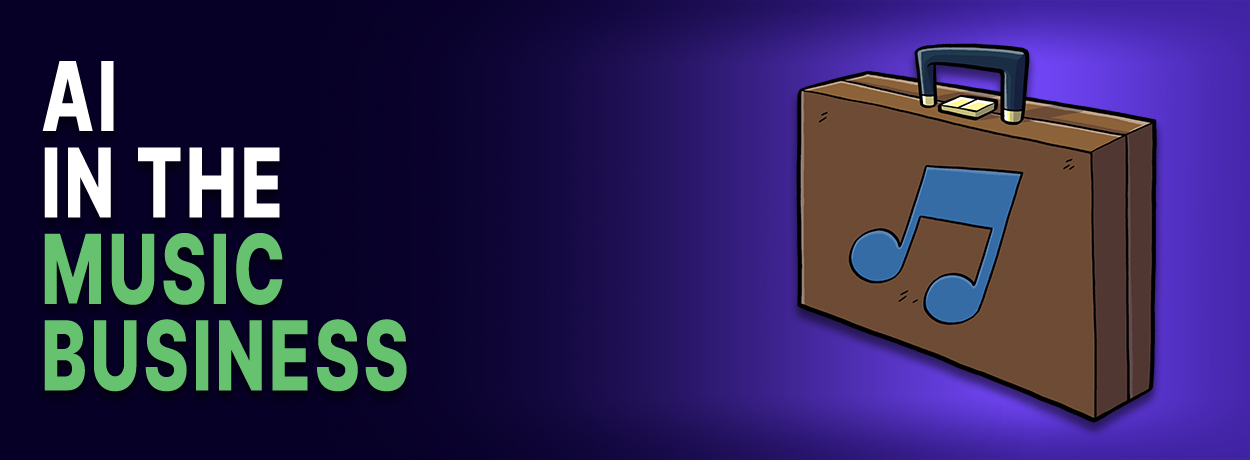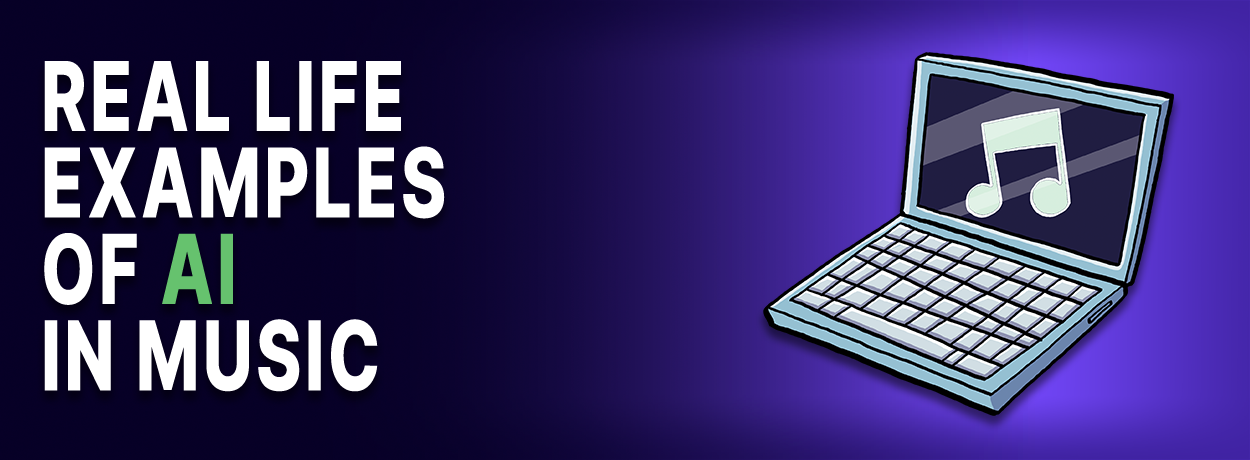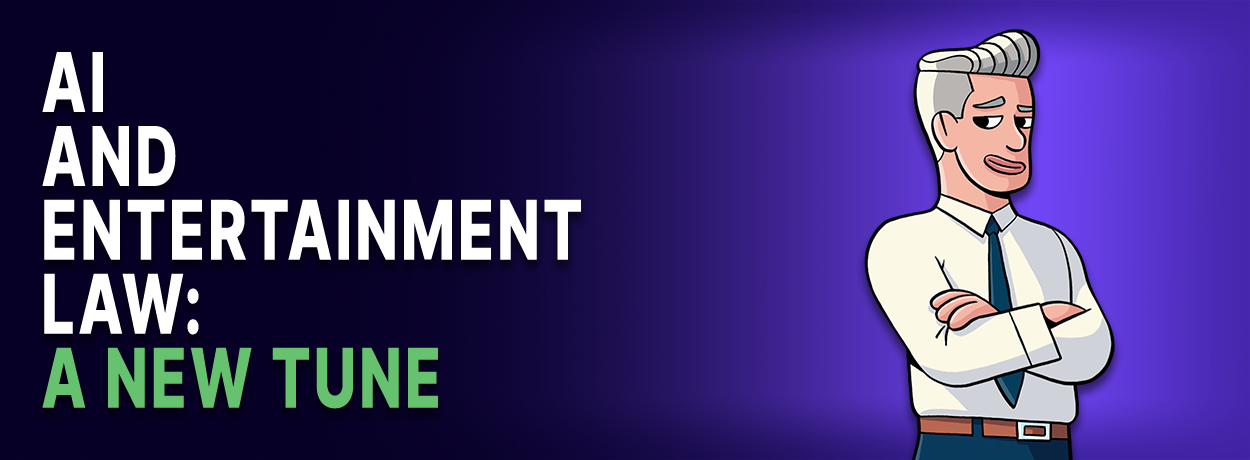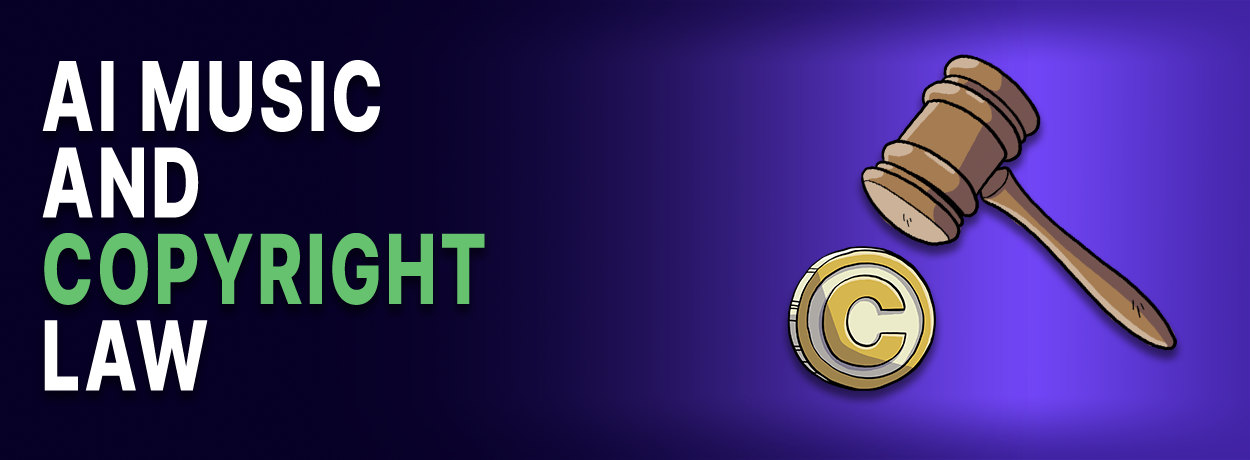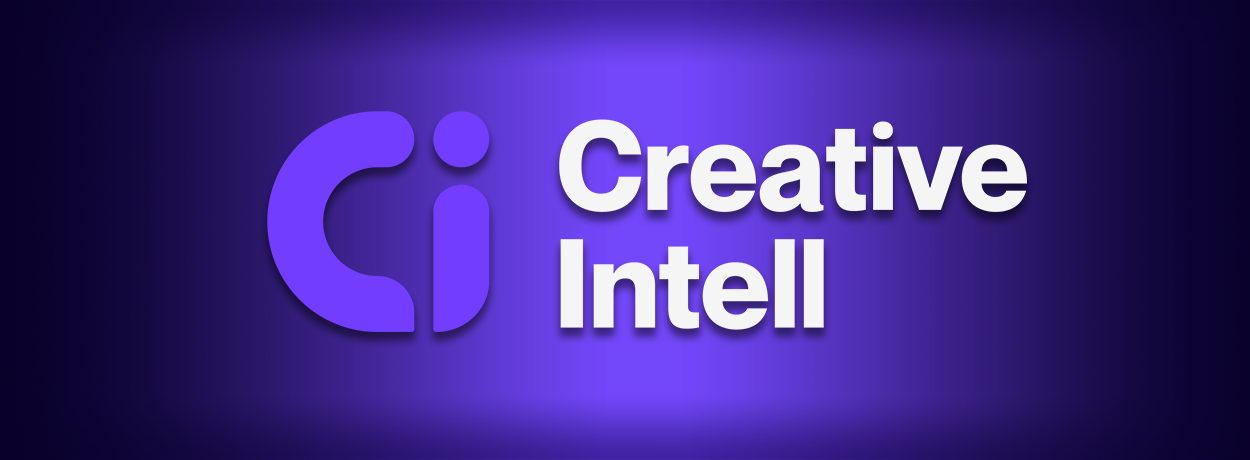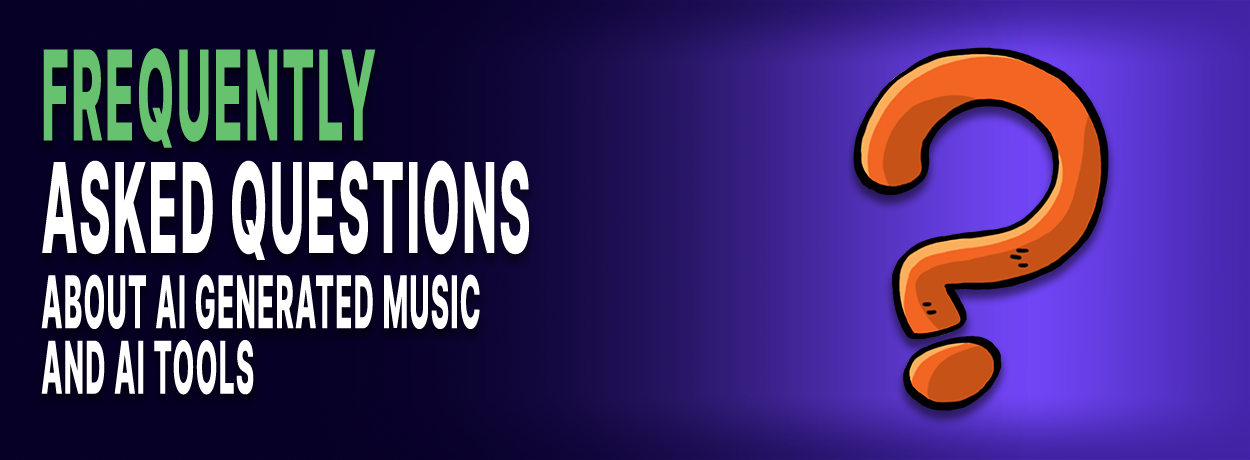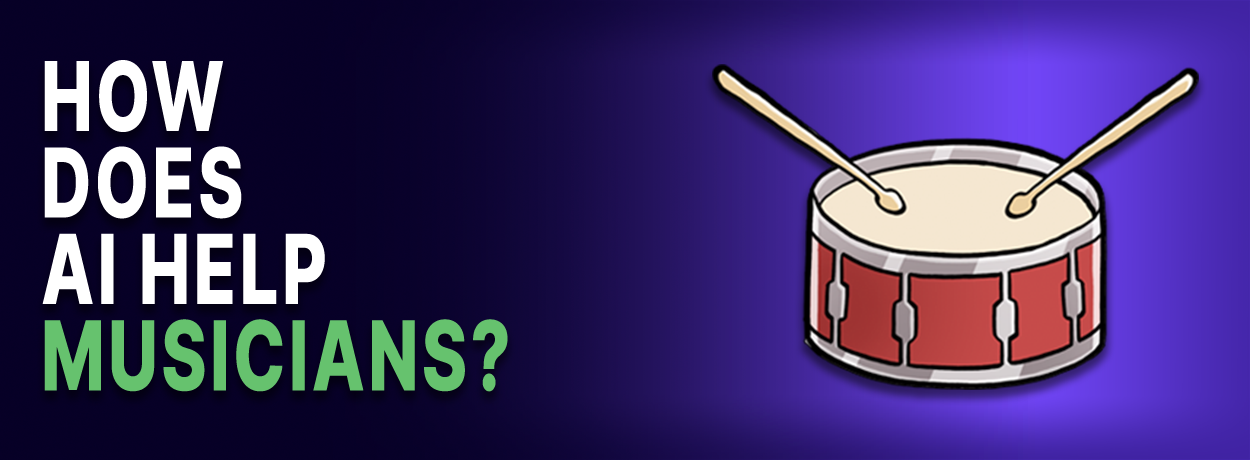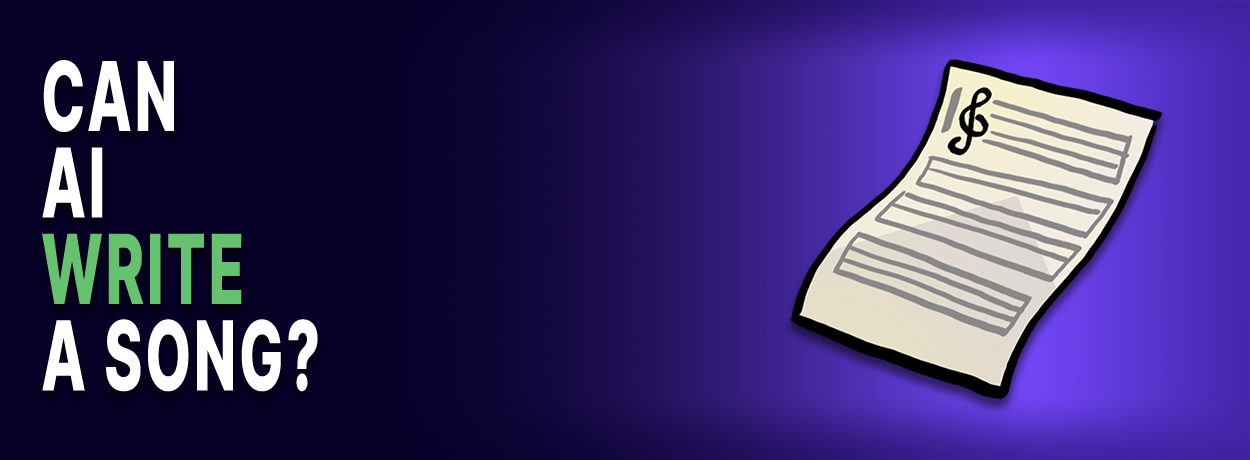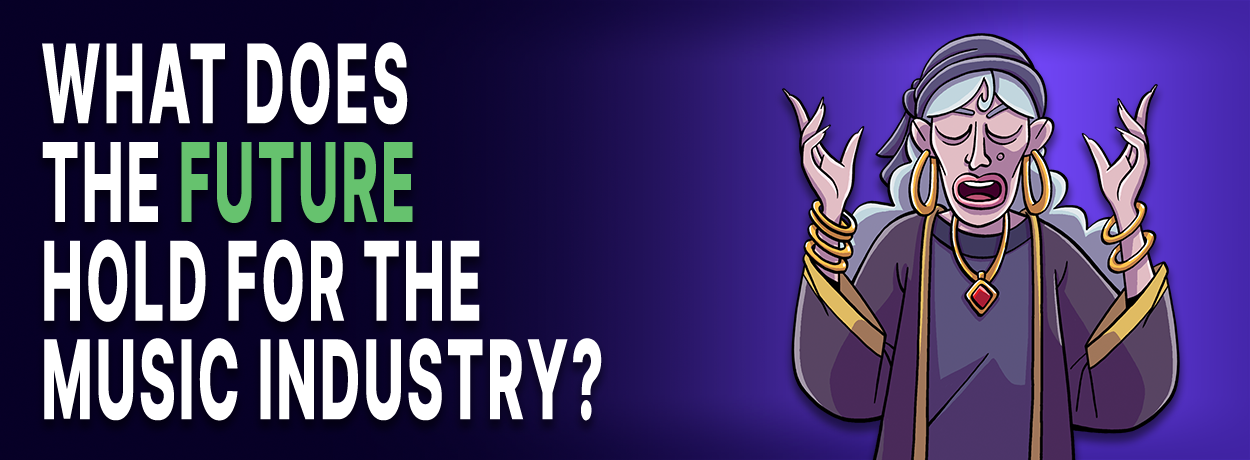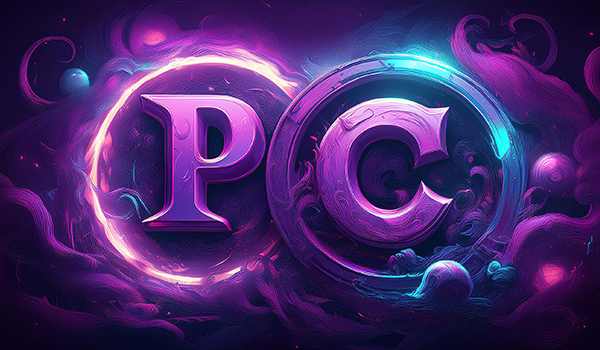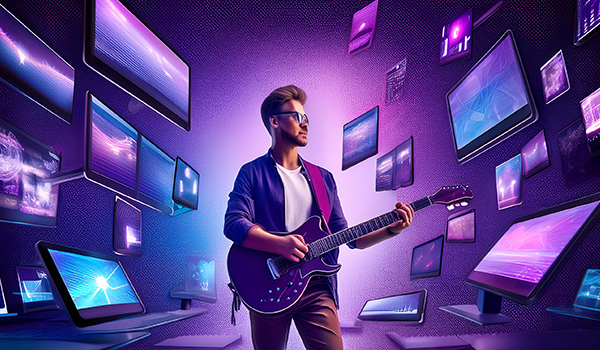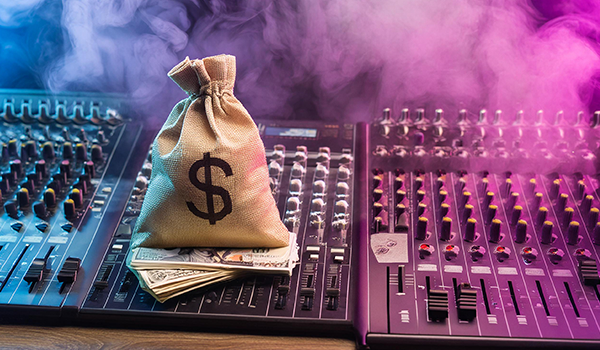AI for Musicians: A Game Changer in the Music Business
Artificial Intelligence (AI) is changing the music business in big ways, with ai music tools giving musicians and industry pros new powers and possibilities, and new problems.
This post looks at the impact of AI on the music business, benefits, tools, real life examples, ethical considerations and platforms like Creative Intell.
Intro
AI is changing the music business so you can create, produce and distribute music faster.
With AI you can create new sounds, automate production, even bring back the voices of legendary artists. And let’s not forget how streaming platforms like Apple Music use AI to recommend songs based on your listening habits.
As AI develops it’s giving musicians and industry pros opportunities and challenges. These advancements are just the beginning of AI's transformative potential in the music industry.
AI in the Music Business
AI is being rolled out across the music business from composition to distribution to self-serve legal tools for artists, managers and record labels.
The benefits are efficiency, creativity and the ability to analyse huge amounts of data to predict trends and preferences.
But there are challenges like ethical concerns, legal implications and the loss of human touch in music creation too.
AI Music Tools and Technology for Musicians
AI music tools are becoming essential for musicians, with features that can help creativity and production. These innovative technologies can generate music created from scratch, showcasing their capabilities in producing original compositions:
-
AI Music Composition: Tools like Amper Music and AIVA let you compose music with AI, for inspiration and new ideas.
-
Sound Design and Mixing: AI driven platforms like LANDR and iZotope help with sound design and mixing, so professional quality production is available to artists.
-
Voice Synthesis and Manipulation: AI can synthesize and manipulate vocals, so you can try out different vocal styles and effects.
These AI tools let musicians create and eventually monetize their own music, with features for unique compositions.
Real Life Examples of AI in Music
AI is already being used in high profile projects:
-
The Beatles’ “Now And Then”: AI was used to isolate John Lennon's voice from a noisy demo, so the surviving Beatles could release a new song with all four of them. This project shows AI’s ability to preserve and enhance legacy recordings by extracting John Lennon's voice which was previously unusable.
-
AI Generated Music: AI has been used to create songs in the style of famous artists, like “Daddy’s Car” which was created using a database of Beatles songs. It’s not perfect but it’s a start, not to mention it raises a number of legal questions.
AI and Entertainment Law: A New Tune
As AI meets the music business a new melody of creativity and innovation is emerging but with it comes a lot of complex legal questions around authorship, ownership, music law and copyright law. As AI music becomes more prevalent it’s important to understand the legal implications of this technology on the entertainment business.
Ethical Considerations and Legal Issues with AI-generated Music
-
Intellectual Property: AI music challenges the traditional idea of authorship and copyright. Musicians and industry pros need to navigate this to protect their work.
-
Voice and Likeness Rights: AI can mimic voices so what about consent and control over your digital likeness? The legal frameworks need to catch up.
AI Music and Copyright Law
One of the biggest questions around AI music is can it be copyrighted? Under current law a work has to be “original” to be eligible for copyright protection.
But the question remains, is AI music “original” if created by a machine alone? In the UK the Copyright, Designs and Patents Act 1988 (CDPA) says works generated by computer in circumstances where there is no human author of the work can be protected as “computer-generated works”.
But the law is unclear if this applies to AI music.
In the US the Copyright Office has taken the view that AI works need “human authorship” for copyright protection as seen in the 2023 denial of an application to copyright an award winning image created by the generative AI system Midjourney.
It’s only a matter of time before copyright law catches up with AI music, so expect new laws or changes to existing laws soon.
To that end the US Copyright Office is actively looking at the legal and policy issues around AI music and there is growing consensus among policymakers and industry pros that copyright laws need to be updated to accommodate this new form of music creation.
In fact, the US Copyright Office has said it won’t register works created by a machine or AI system, but there are efforts underway to develop new frameworks to give clarity and protection to AI music creators.
Also, many rights holders are suing generative AI music platforms over concerns that the use of their IP to train AI is copyright infringement. This will likely lead to more legal clarity.
Authorship and Ownership of AI Music
While policymakers are figuring this out one of the biggest questions around AI music is authorship and ownership. If an AI program creates a piece of music who is the author?
Is it the programmer who created the AI, the user who input the data or the AI program itself? Under current law the author of a work is typically the person who created the work.
Currently it’s unclear who is the author in the case of AI music which raises big questions around ownership and copyright law.
AI and Music Industry Contracts
AI music also has big implications for music industry work and agreements. For example, if an AI program creates a piece of music who owns the rights to that music? Is it the person controlling it or the AI program itself?
This means new contractual arrangements are needed around AI music.
On the business and legal side of the music industry Creative Intell will soon be launching an AI-driven dealmaking platform that will make music lawyers’ jobs easier while allowing artists, producers and their managers to do their own ‘self-serve legal’. To get early access to the Creative Intell AI dealmaking platform click here.
AI in the Music Industry
As AI gets more advanced we will see big changes in the music industry. These are just the start of bigger transformations in creative industries. AI music will become more common and the law will need to catch up to the questions around authorship, ownership and copyright law.
In summary, AI and entertainment law is a complex and rapidly changing space. As AI music becomes more common it’s important to understand the implications for the entertainment industry.
The law will need to catch up to the questions around authorship, ownership and copyright law and new contractual arrangements will be needed to cover AI music.
Creative Intell in the AI and Music Space
Creative Intell is leading the way in AI in the music industry with tools and platforms that empower musicians, producers, their managers, their record companies and yes, music lawyers. These tools can support and amplify an individual artist’s music career by facilitating collaboration and simplifying the industry.
Summary of AI in the Music Business
AI is a powerful force in the music industry changing the way music is made and presenting new opportunities and challenges. As technology gets more advanced musicians and industry professionals need to adapt to use the power of AI while addressing the ethical and legal issues.
The future of AI in music is bright with endless possibilities for creativity and innovation.
FAQ about AI Generated Music and AI Tools
What is AI in music production?
AI in music production is using algorithms and machine learning to help with composing, producing and mixing music. It can automate repetitive tasks, generate new musical ideas and improve sound quality.
AI music tools, or "music AI tools," are part of this process by allowing artists to streamline their workflow, generate compositions and transform musical content through advanced algorithms and neural networks.
How does AI help musicians?
AI helps musicians with tools that boost creativity, simplify production and provide data driven insights into audience preferences. It allows artists to try new sounds and improve their music.
What are the ethical issues with AI in music?
Ethical issues are around authorship and copyright, loss of human creativity, and using AI to mimic voices without consent. These need to be thought through and legislated.
Can AI write a song?
AI can generate musical ideas and parts of a song such as lyrics, melodies and harmonies. But how much of a complete, coherent and emotionally resonant song can AI create is still up for debate.
What are the legal considerations for musicians when using AI?
Musicians should be aware of copyright implications when using AI content and voice and likeness rights. Talk to a music lawyer to help you navigate this.
What does the future hold for the music industry?
AI will change the music industry, present new opportunities and simplify production. But it will also challenge the old roles and business models, so industry professionals will have to adapt.
Disclaimer: Creative Intell is not affiliated, nor associated in any way, with any third parties referenced herein, nor their respective goods or services. Any and all third-party trade names, trademarks, and/or service marks referenced are used for informational purposes only, and are the exclusive property of their respective trademark owners.
Tags:
Music Business 101

